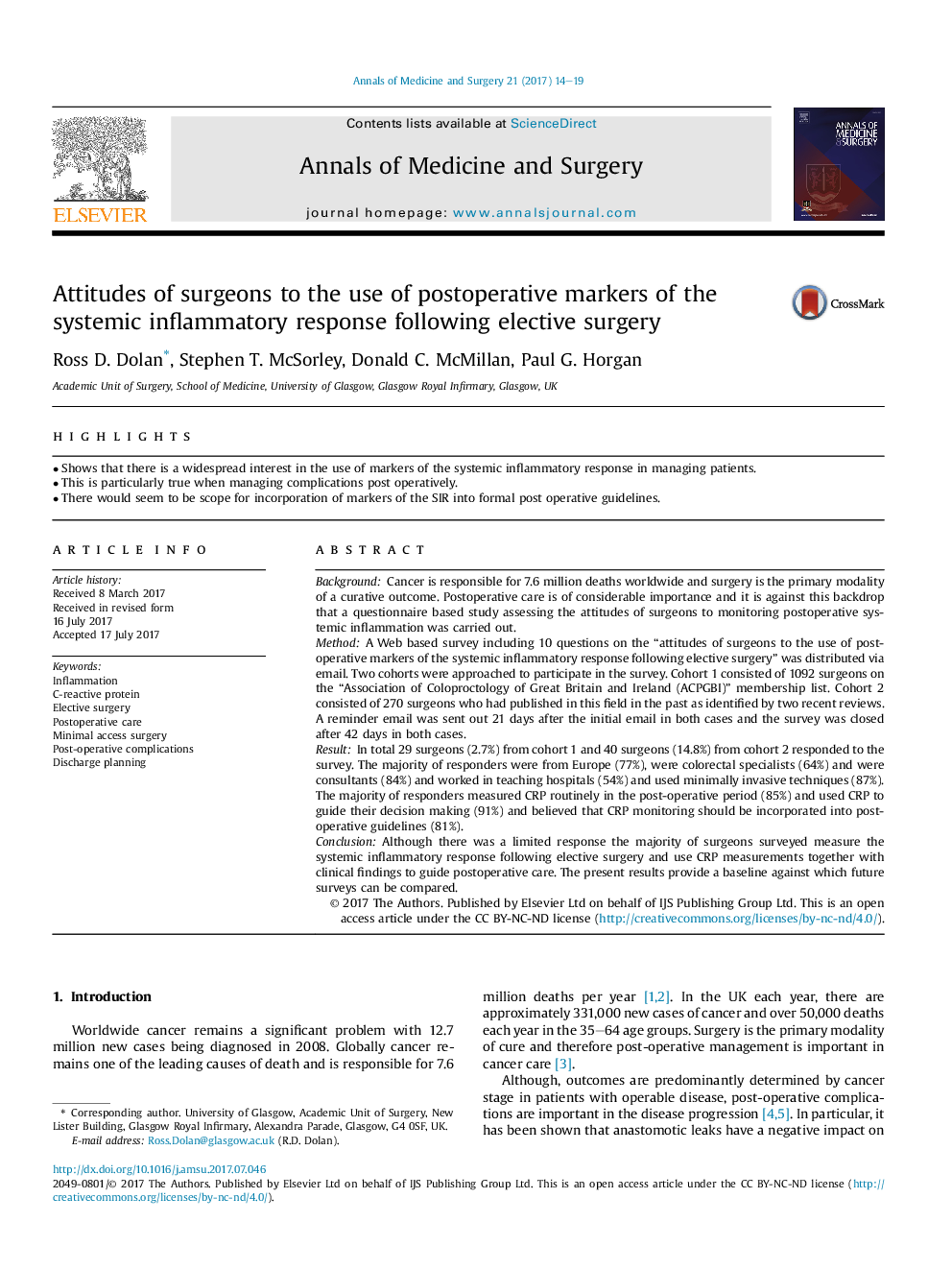| Article ID | Journal | Published Year | Pages | File Type |
|---|---|---|---|---|
| 5722856 | Annals of Medicine and Surgery | 2017 | 6 Pages |
â¢Shows that there is a widespread interest in the use of markers of the systemic inflammatory response in managing patients.â¢This is particularly true when managing complications post operatively.â¢There would seem to be scope for incorporation of markers of the SIR into formal post operative guidelines.
BackgroundCancer is responsible for 7.6 million deaths worldwide and surgery is the primary modality of a curative outcome. Postoperative care is of considerable importance and it is against this backdrop that a questionnaire based study assessing the attitudes of surgeons to monitoring postoperative systemic inflammation was carried out.MethodA Web based survey including 10 questions on the “attitudes of surgeons to the use of postoperative markers of the systemic inflammatory response following elective surgery” was distributed via email. Two cohorts were approached to participate in the survey. Cohort 1 consisted of 1092 surgeons on the “Association of Coloproctology of Great Britain and Ireland (ACPGBI)” membership list. Cohort 2 consisted of 270 surgeons who had published in this field in the past as identified by two recent reviews. A reminder email was sent out 21 days after the initial email in both cases and the survey was closed after 42 days in both cases.ResultIn total 29 surgeons (2.7%) from cohort 1 and 40 surgeons (14.8%) from cohort 2 responded to the survey. The majority of responders were from Europe (77%), were colorectal specialists (64%) and were consultants (84%) and worked in teaching hospitals (54%) and used minimally invasive techniques (87%). The majority of responders measured CRP routinely in the post-operative period (85%) and used CRP to guide their decision making (91%) and believed that CRP monitoring should be incorporated into postoperative guidelines (81%).ConclusionAlthough there was a limited response the majority of surgeons surveyed measure the systemic inflammatory response following elective surgery and use CRP measurements together with clinical findings to guide postoperative care. The present results provide a baseline against which future surveys can be compared.
